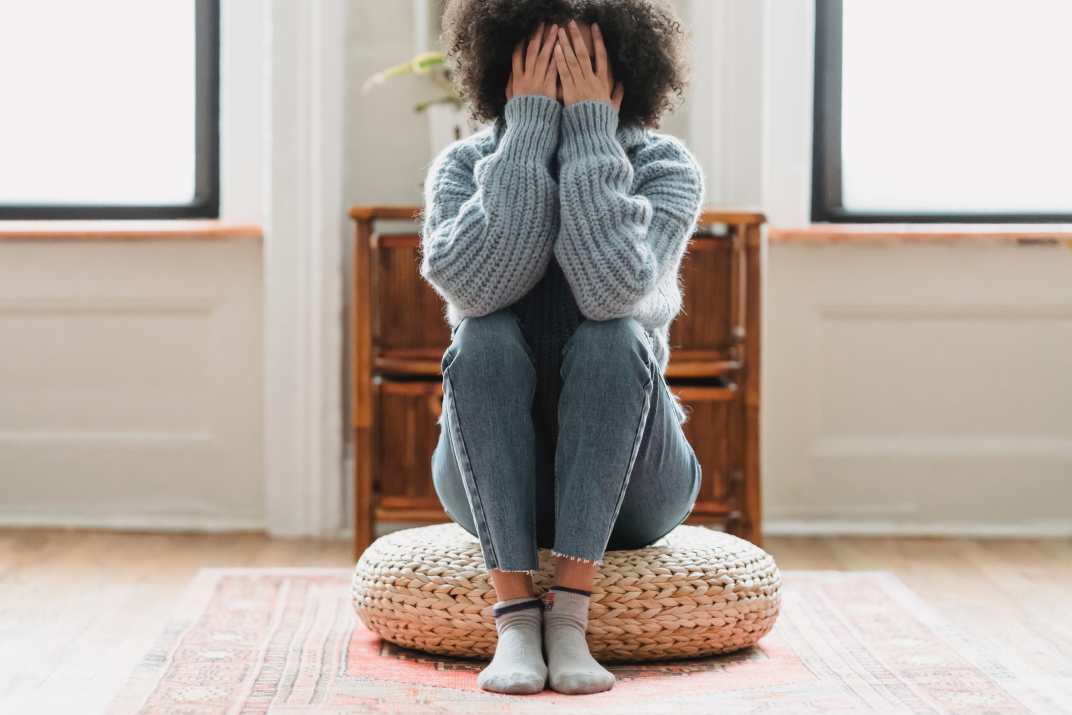Is It True That Yeast Infections Can Cause Infertility?
You may know the familiar itching, burning irritation of a vaginal yeast infection, but do you know what long term effects they have on your fertility? Vaginal yeast infections are unfortunately an extremely common experience among women. Almost 3 out of 4 women will experience at least one yeast infection in their life, with many experiencing two or more. If you’re not trying to get pregnant, they might be little more than a minor (or major) irritation, but when you are TTC you don’t want to take any chances.

If you are experiencing yeast infections, you may be wondering if you can get pregnant with one or worse, whether a yeast infection causes infertility. Read on to learn more about yeast infections and whether they affect fertility.
Can yeast infections cause infertility?
By themselves, yeast infections do not directly cause infertility, but that may not be the whole story. When the balance of vaginal flora is off, a woman’s body reacts differently to sperm through a number of physical changes. For instance, a yeast infection can cause changes in your cervical mucus, making it harder for the sperm to enter the uterus.
The imbalance in pH levels can make the environment more hostile to sperm and they simply can’t survive. If the sperm can’t reach an egg to fertilize, either because of changes to the cervix or inhospitable conditions along the way, your chances of getting pregnant will naturally decrease.
Do yeast infections affect your chances to conceive?
Having a yeast infection may not directly affect your chances of getting pregnant, but they can have an impact on conception. Poor vaginal flora can directly impact a woman’s ability to get pregnant through changes to the environment that make it inhospitable to sperm. If the sperm can’t get to where it needs to go, your chances of conception will drastically decrease.
In addition, when you are suffering from a yeast infection, you may not feel like having sex, or it may be too painful. Uncomfortable and painful sex may make you less inclined to engage in intercourse. So while there is no conclusive evidence that yeast infections cause infertility, they can impact your chances to conceive in other ways.
How are yeast infections treated?
Luckily, when it comes to yeast infections, there are a wide range of treatment options available based on the severity of the infection. A variety of over the counter options such as creams, suppositories, ointments, and tablets are available without a prescription. These antifungal medications often come in 1, 3, or 7 day strengths and are usually less concentrated doses of what a doctor might prescribe.
If your symptoms are severe, or the course of treatment hasn’t worked, your doctor might recommend a prescription strength option, or oral medication to combat the infection. Using the wrong medication may make things worse, so treatment should be selected carefully by your healthcare provider.
What are the ways to prevent yeast infections?
Prevention is always better than a cure and by eliminating or reducing the factors that contribute to a yeast infection you may be able to head one off before symptoms occur.
Maintain hygiene around the vaginal area
Keep the area clean by washing with a mild soap and water and dry thoroughly after cleaning. Wipe front to back to avoid introducing additional microorganisms to the urinal tract. And avoid douching, as it can change the natural balance of vaginal flora.
Do not wear tight clothes
Tight fitting clothes can trap heat and moisture, creating the perfect environment for yeast to reproduce. Wear loose fitting clothing that lets the area breathe and doesn’t hold moisture close to your skin.
Use chemical-free pads or tampons
Chemicals, perfumes, and dyes can all be irritating to the vagina and create an imbalance in the natural bacteria. Use chemical-free sanitary products and change them regularly in addition to avoiding powerful scents found in powders, sprays, and other products.
Pee after sex
Peeing after sex flushes bacteria away from the area so it can’t settle and cause an infection. Although this advice is normally given for preventing urinary tract infections, it can be a precautionary measure for yeast infections as well.
Follow a healthy diet
Being overweight and eating a diet high in sugar can both be contributing factors to yeast infections. Yeast feeds on sugar, so limiting sugar in your diet can help curb the growth of yeast in your body. Eating the right food may not cure a yeast infection, but following a healthy diet can help your body fight the infection better and make recurrence less likely.
Consider taking probiotics
Yeast infections occur when the balance of yeast and bacteria are out of whack, leading to unchecked fungal growth. Probiotics help balance the good bacteria in your body to maintain a healthy pH level in the vagina.
What is a yeast infection?
A healthy vagina is a delicate balance of flora that contains both bacteria and some yeast cells. When that balance is off, yeast cells can multiply to unhealthy levels, causing the tell tale itching, burning, swelling, and irritation. Also known as vaginal candidiasis, a yeast infection is essentially a fungal infection in or around the tissues at the vaginal opening – the vagina and the vulva.
Signs and symptoms
Intense irritation and itching are the hallmark signs of a yeast infection, but there are other identifiers as well. The burning sensation that accompanies most yeast infections is particularly brutal during urination or sex and the swelling + redness around your vulva may be accompanied by a vaginal rash. You will likely experience pain and soreness in the general region coupled with a thick, odorless vaginal discharge that has a white, cottage-cheese like appearance.
Of course not all yeast infections present the same – in up to 20 percent of cases, symptoms such as discharge and intense itching are missing. Some infections are mild and do not cause the usual symptoms and many women never ever know they have an infection. However, when left untreated, the symptoms will worsen and you increase the risk of more widespread infection in your body.
Causes of a yeast infection
Overgrowth of yeast can result from antibiotics, pregnancy, uncontrolled diabetes, a weakened immune system, and hormone medications such as oral contraceptives or hormone therapy. Other factors such as stress, poor sleep, and poor eating habits can also contribute to yeast infections.
When do I need to see a doctor?
If you’ve dealt with yeast infections before, you might seek over the counter treatment first before consulting with your doctor. Even if you are familiar with the symptoms, there are certain times to see a doctor for this common infection.
If this is your first infection you should always see a doctor. Not only can they provide a diagnosis, but they can prescribe treatments that have a systemic effect on the body, rather than the localized effect of creams and suppositories. And if you are pregnant, any medications will need to be approved by your doctor first.
If you suffer from yeast infections often, there may be something more going on. A consultation with your doctor can determine the right course of treatment, which may be different from a one-off infection. Yeast infections can also be a sign of an underlying medical condition like diabetes, which your doctor will investigate based on your medical history.
Tracking your cycle can help determine when to see a doctor as well. As you’re already familiar with what’s “normal” for you, changes are detected early and you can take action sooner rather than later when it comes to scheduling a visit.
What else could it be?
Most yeast infections clear up within a few days or weeks with the right course of treatment. If your symptoms don’t improve within a few days, or you suffer from chronic infections, you may not be dealing with something else entirely.
Conditions such as bacterial vaginosis, vulvitis, and some STIs may all be responsible for your symptoms. Even hemorrhoids can mimic symptoms, leading you to suspect a yeast infection rather than the true culprit. Overlapping symptoms may lead to a misdiagnosis, but if your symptoms don’t go away, even after treatment, follow up with your healthcare provider to get to the bottom of what’s really going on.
Yeast infections may not cause infertility, but paying attention to your vaginal health is never a bad thing, especially when it comes to fertility.
Mira’s Editorial Process
All content produced by Mira meets stringent editorial standards, ensuring excellence and accuracy in language and medical precision. Every piece undergoes thorough fact-checking and review by qualified professionals. Check out our full editorial process to learn more.










